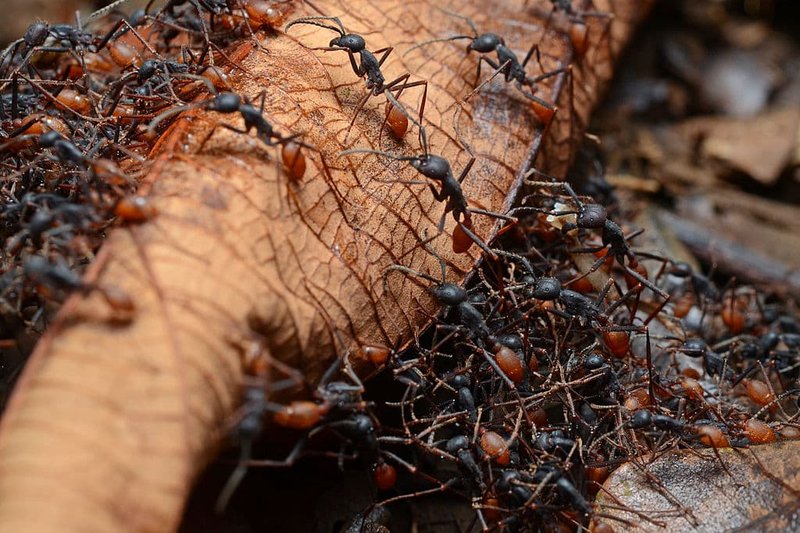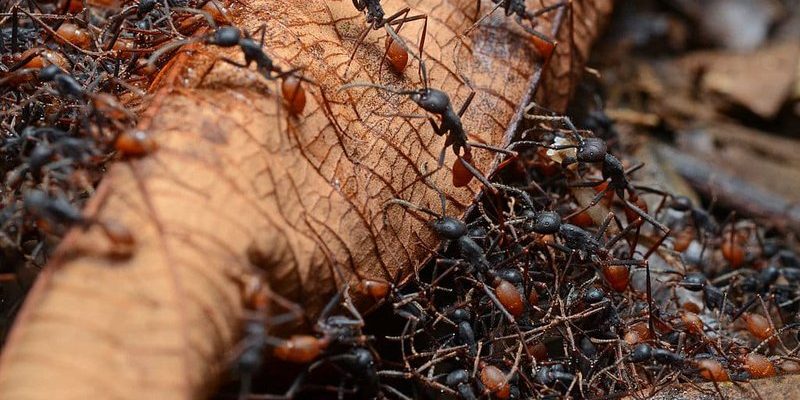
Imagine ants as a mixed bag of friends at a party. Most of them are friendly and just there to share snacks, while a few might start trouble. Understanding which ants are the troublemakers can help you keep your distance and stay safe. So, let’s dig deeper into this curious world of ants and see if they might be a danger to you and your loved ones.
What Types of Ants Are Commonly Found?
Ants are everywhere, and there are over 12,000 known species around the world! They can be categorized into a few main types, each with different habits and characteristics. Some of the most common types include:
- Carpenter Ants: Found in wooded areas, these ants are known for tunneling through wood.
- Fire Ants: Recognizable by their reddish-brown color, these ants are particularly aggressive and can sting.
- Pavement Ants: Often found in urban areas, they like to build their nests in cracks in pavement.
- Odorous House Ants: Named for their distinct smell when crushed, these ants often invade homes seeking food.
Each of these types has unique behaviors and habitats. For example, while carpenter ants can weaken structures by hollowing out wood, fire ants are notorious for their painful stings. It’s crucial to recognize these differences to understand their potential threat level.
Can Ant Stings or Bites Harm You?
While many ants don’t bite or sting, some definitely do, and their bites can be quite painful. Fire ants are perhaps the most infamous for their stings, which can cause a burning sensation, itchiness, and even allergic reactions in some individuals. Here’s a quick rundown of what to expect:
- Pain: The sting can feel like a sharp needle prick.
- Swelling: The affected area may swell and become red.
- Allergic Reactions: In rare cases, people might experience severe allergic reactions, leading to anaphylaxis.
If you’re hiking or spending time outdoors, you might be wondering how to avoid these painful encounters. Keeping food sealed and avoiding walking barefoot are great ways to reduce your chances of discomfort.
Are Any Ants Venomous?
When people think about danger, venom often comes to mind. Surprisingly, some ants do have venom that can affect humans. Fire ants, for example, possess venom that can cause not just pain but also more serious reactions in some individuals.
Their venom is a chemical cocktail that affects the nervous system. It’s what makes their sting feel so intense. However, not all ant species are venomous. Most are harmless and may only bite when provoked. Knowing which ants are venomous can help you approach them with caution.
Do Ants Spread Diseases?
You might be surprised to learn that ants can potentially be involved in spreading disease. While they aren’t known carriers of major human diseases like mosquitoes are, they can contaminate food and surfaces with bacteria. Common household ants, like the odorous house ant, are notorious for crawling through dirty areas and then onto your kitchen counter.
To minimize risks, it’s important to practice good hygiene and keep your living space clean. If you notice an ant invasion, it’s best to address it quickly to prevent any potential food contamination.
What Should You Do If You’re Bitten or Stung?
If you find yourself stung or bitten by an ant, don’t panic! Here’s a simple step-by-step guide to managing the situation:
1. Clean the Area: Rinse the site with soap and water to remove any debris.
2. Ice the Area: Apply an ice pack or a cold compress to reduce swelling and numb the pain.
3. Take Pain Relief: Over-the-counter pain relievers like ibuprofen or acetaminophen can help alleviate discomfort.
4. Watch for Allergic Reactions: Keep an eye out for symptoms like hives, difficulty breathing, or swelling beyond the bite area. If these occur, seek medical help immediately.
Most ant stings will heal within a few days, but it’s wise to be aware of your body’s reactions.
How to Prevent Ant Infestations
Preventing ant infestations in your home can save you from potential bites, stings, or health risks. Here are some actionable tips to keep ants at bay:
- Seal Cracks: Check for gaps in walls, around windows, or doors, and seal them to block entry.
- Keep Food Sealed: Store food in airtight containers and clean up spills promptly.
- Remove Standing Water: Ants are attracted to moisture, so fix leaks and avoid water buildup around your home.
Regularly inspecting your property and maintaining cleanliness can significantly reduce the chance of an ant invasion.
Final Thoughts: Are Ants Dangerous to Humans?
So, are ants dangerous to humans? The answer isn’t black and white. While most ants are harmless and play a crucial role in the ecosystem, certain species can pose risks through bites, stings, and potential contamination. By recognizing the types of ants and the threats they may bring, you can navigate the world of ants safely.
Remember, not all ants are villains. Many are simply part of our everyday environment, and with a little caution and knowledge, you can coexist with them peacefully. Whether you’re hiking in the woods or enjoying a picnic in the park, keeping a respectful distance from these tiny creatures will go a long way in ensuring your safety.

